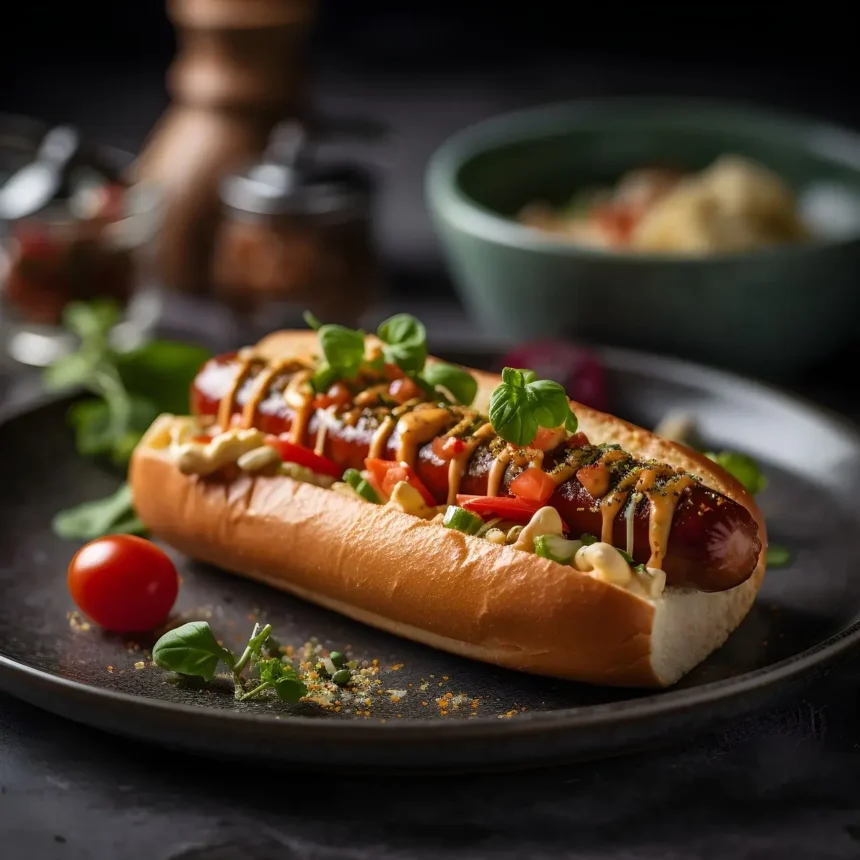Eating Hotdogs Is Treason in North Korea – What It Says About the Regime’s Control
North Korea’s strict views on culture and foreign influences have led to some unusual policies. One of the most surprising is the ban on eating hotdogs, which the government has made a criminal act. This article looks 7 Shocking Reasons Eating Hotdogs Is Treason in North Korea.
We’ll explore how the regime uses political propaganda, enforces cultural identity, and pushes anti-Western policies to maintain control.
Reasons At a Glance
| Reasons |
|---|
| Hotdogs are banned in North Korea due to anti-Western sentiment. |
| Consuming hotdogs is seen as adopting Western cultural practices. |
| The act of eating hotdogs symbolizes rebellion against state ideologies. |
| North Korea’s leadership enforces strict food cultural norms. |
7 Shocking Reasons Eating Hotdogs Is Treason in North Korea
In many countries, eating hotdogs is a common and enjoyable activity. However, in North Korea, it is seen as a dangerous and even treasonous act. The government associates hotdogs with Western influence and views them as a threat to its strict ideology. This simple food has become a symbol of rebellion and cultural infiltration..
But why is something so ordinary treated with such severity? In this article, we explore seven surprising reasons behind North Korea’s strict ban on hotdogs.
1. Symbol of Western Influence
Hotdogs, a quintessential Western food, are viewed as symbols of Western cultural invasion. North Korea’s regime fiercely opposes anything that could dilute its traditional values or promote foreign influences.
2. Violation of Cultural Identity
The North Korean government emphasizes self-reliance (Juche ideology) and cultural purity. Eating a hotdog is seen as betraying the country’s heritage by embracing Western customs.
3. Propaganda Against Foreign Foods
State propaganda often vilifies foreign foods, including hotdogs, as unhealthy and corrupting. This discourages citizens from adopting “capitalist” lifestyles.
4. Hotdogs as a Symbol of Rebellion
Choosing to eat a hotdog can be interpreted as a silent protest against the regime. This act of defiance may be punished harshly to maintain strict obedience.
5. Strict Food Policies in North Korea
Food is tightly controlled in North Korea. The introduction of “non-native” foods is prohibited to reinforce the idea of national self-reliance. Hotdogs are seen as unpatriotic and unnecessary luxuries.
6. Fear of Westernization
The North Korean leadership fears that exposure to Western lifestyles, starting with small cultural habits like eating hotdogs, could weaken its control over citizens.
7. Severe Penalties as a Warning
The regime uses extreme measures, such as branding hotdog consumption as treason, to deter any behavior that contradicts its doctrines. This tactic instills fear and enforces conformity.
Why North Korea Bans Hotdogs: The Shocking Truth
North Korea has outlawed hotdogs, considering them a symbol of Western influence and cultural infiltration. But why does the regime see a simple food as such a threat?
How Eating Hotdogs Is Treason in North Korea
The act of consuming hotdogs is not just discouraged—it is considered an act of rebellion. The regime enforces strict food policies to maintain cultural and political control.
The Political Reason Behind North Korea’s Food Restrictions
Foreign foods, especially those associated with Western culture, are strictly banned. The leadership believes allowing such influences could weaken its grip on the population.
Cultural Purity: The Driving Force Behind North Korea’s Food Laws
The government promotes self-reliance and the Juche ideology, discouraging anything foreign. Eating a hotdog is seen as betraying national identity.
Propaganda and Food: How the Regime Controls What People Eat
State propaganda labels Western foods like hotdogs as unhealthy and corrupting. This discourages citizens from embracing foreign lifestyles.
How North Korea Enforces Its Strict Food Policies
Breaking food laws can result in severe punishment. The government uses extreme measures to prevent Western influences from taking root in society.
Westernization vs. Control: Why the Regime Fears Foreign Influence
Even small cultural shifts, like eating a hotdog, are seen as a gateway to rebellion. The leadership fears that exposure to Western habits could challenge its authority.
Final Thoughts: The Bigger Picture Behind North Korea’s Ban on Hotdogs
This ban is about more than food—it’s about control, ideology, and power. The leadership ensures that even minor cultural influences are kept out to maintain its rule.
Most read: https://tnheadlines24.com/will-india-help-free-balochistan/
#NorthKorea #HotdogBan #CulturalControl #WesternInfluence #JucheIdeology #FoodRestrictions #PoliticalControl #Propaganda #AntiWestern #NorthKoreaNews
Disclaimer
This content is for informational and educational purposes only. It is based on research and publicly available sources. The views expressed do not reflect those of TN HEADLINES24 or its affiliates. Readers are encouraged to cross-verify the information independently. TN HEADLINES24 does not endorse or promote any political opinions or ideologies. Any resemblance to real events is purely coincidental. All rights reserved by TN HEADLINES24.

